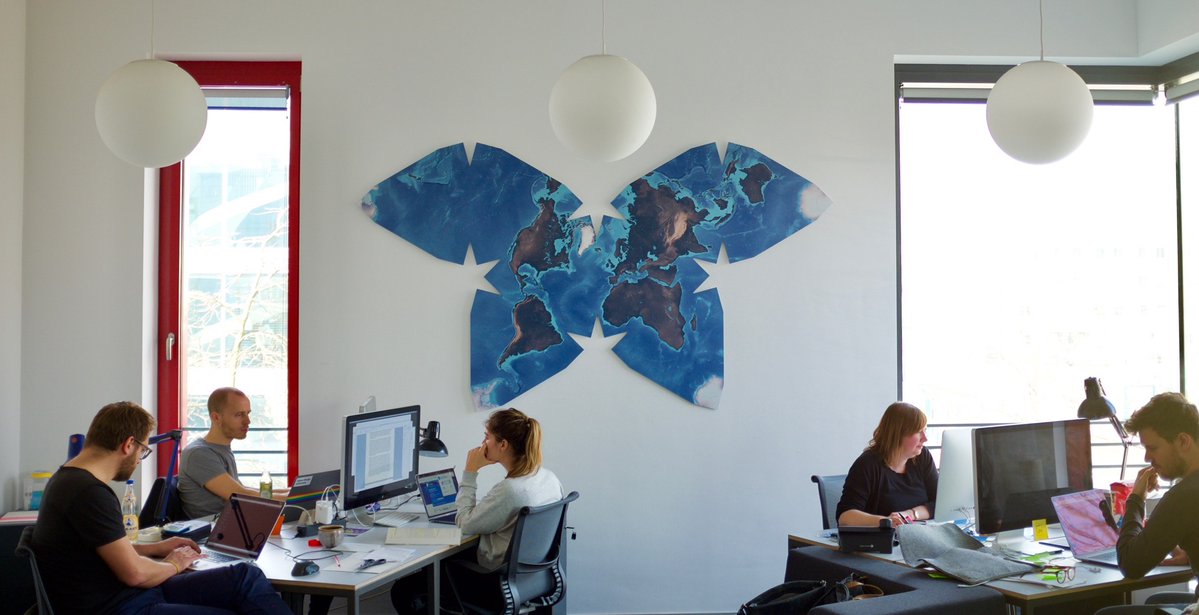Where does our rubbish actually go? When is water consumption at the highest point in the week? How is passenger traffic distributed in a city? These and many similar questions will be addressed by “VIDAN” starting in autumn 2019. Vidan stands for “Visual and Dynamic Arrangements of Narratives” and is a new project of the Urban Complexity Lab (UCLAB), an interdisciplinary research group at the University of Applied Sciences Potsdam. For three years, the UCLAB scientists will be occupied with new forms of data visualisation of urban infrastructure. The project is funded by the Federal Ministry of Education and Research (BMBF). Existing data from utility companies will be collected, processed, visualised and provided with explanatory texts by the researchers and designers. The aim is to present and explain complex interrelationships in an appealing design to politicians and the business community as well as interested citizens in an comprehensible, creative and critical way. Some data sets are still missing before the project can really get going. These are currently still being gathered, and, of course, in line with DSGVO regulations. The responsible handling of data and algorithms is a top priority at UCLAB.
But what is UCLAB actually? The Lab, an abbreviation of Laboratory, was founded in 2015. Urban Complexity, that indicates what is at stake: complex municipal developments and infrastructures, i.e. the city from a cultural, socio-economic and technological perspective. Meanwhile, other fields have been added, including a research project on climate scenarios. The Lab has, for example, created an app that can be used to track the massive increase in CO2 emissions over the decades. The research laboratory is jointly headed by Marian Dörk, Research Professor for Information Visualisation, and Boris Müller, Professor for Interaction Design. Both jointly founded the laboratory in 2015. “We are an interdisciplinary research group at the Potsdam University of Applied Sciences, located between interface design, computer science and the humanities,” the UCLAB website says. At the centre of the research is the comprehensible presentation of the challenges and questions arising from social, cultural and technological changes.
Data visualisations are something we come across quite often nowadays. Media such as Zeit Online, Tagesspiegel, Berliner Morgenpost and the New York Times have now undertaken their own data projects. The difference between the UCLAB projects and examples from media practice is that the visualisations at UCLAB are not only a means to an end, but also an object of research. The aim of the work is to develop new forms that go beyond conventional charts and maps. Moreover, UCLAB is explicitly a non-commercial research group that is solely concerned with insights from freely available data. Unlike technology and media companies, no user data is collected here. The focus is on making something visible that has not otherwise been seen before in order to provide insights and new findings.
UCLAB’s work is interesting for all those who have complex dynamic data that they want to make visible, tangible and comprehensible. These can be private organisations such as transport companies, electricity suppliers or retailers, as well as academic, cultural and public institutions. All research projects are collaborative. It is always important to UCLAB that free research is possible. Pure service projects therefore don’t play any role there. In addition to public financing, partner financing is also possible.
By Eva Werner
About MTH Blog
The media technologies of the future are already being used today – not only in the entertainment sector, but also in a wide variety of industries. Christine Lentz meets up with tech enthusiasts, established companies and researchers for our monthly MediaTech Hub Potsdam blog to tell the stories behind the innovative business models.



